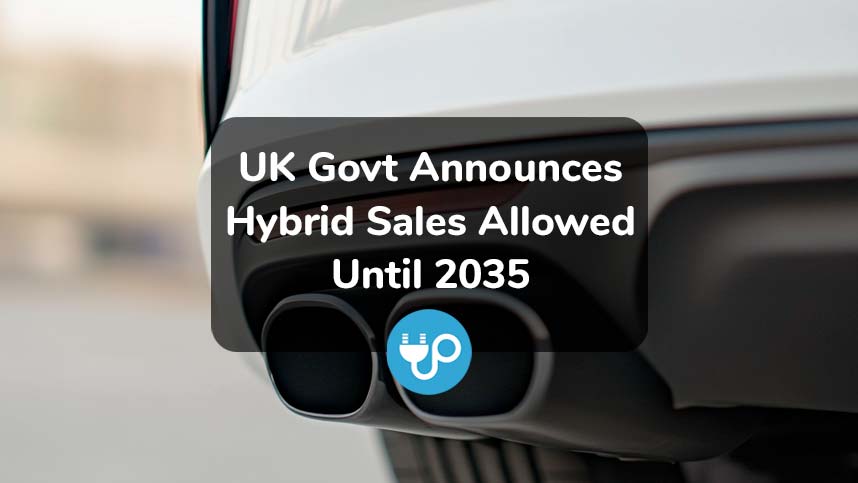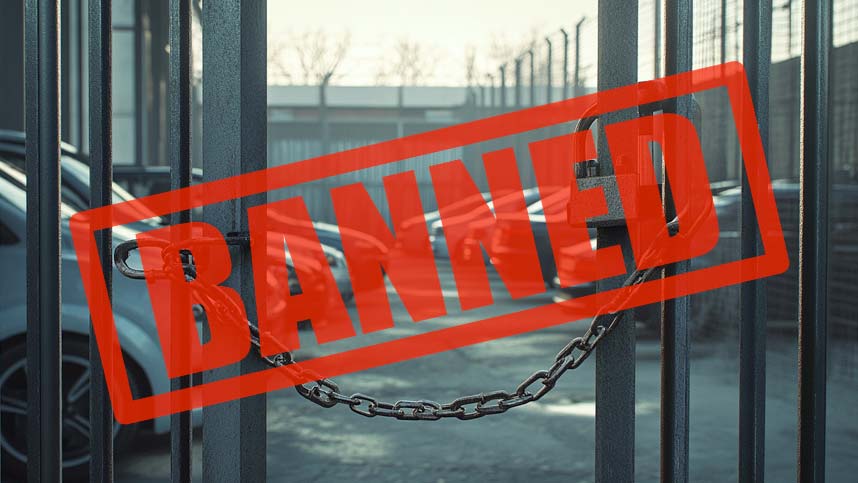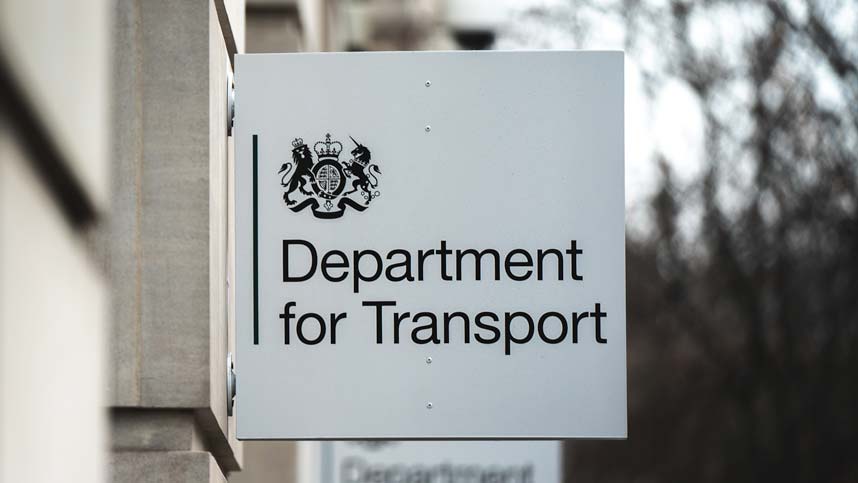
UK Government Announces Hybrid Sales Allowed Until 2035
In a move that has surprised both environmentalists and the automotive industry, the new UK Labour government has reversed its stance on the sale of petrol and diesel cars.
Following a previous announcement by Conservative Prime Minister Rishi Sunak to extend the ban to 2035, the Labour government has reinstated the original 2030 date for the ban on sales of new petrol and diesel vehicles.
However, a key element of their campaign manifesto has been adjusted: some hybrid vehicles will still be allowed until 2035, though the specifics of what constitutes "some" are yet to be clarified.
This decision marks a critical moment for the UK's push toward net-zero emissions.
It raises serious concerns about the effectiveness of the country’s climate goals, particularly as EV sales have plateaued in recent months.
The lack of detail around the hybrid caveat is generating significant uncertainty, leading to fears that it may discourage electric vehicle (EV) adoption in favour of hybrid models, which still rely on internal combustion engines (ICEs).
Chapters
What is the ZEV Mandate?
The Zero Emission Vehicle (ZEV) mandate is a central pillar of the UK government’s strategy to decarbonise road transport.
It stipulates that by 2030, all new cars sold in the UK must be zero-emission at the tailpipe.
This essentially means a complete shift to electric vehicles (EVs) (or hydrogen-powered vehicles).
The ZEV mandate has been in development for years, aligning with the UK’s broader goal of becoming a net-zero economy by 2050.
Prior to Labour's latest announcement, the ZEV mandate included a gradual phasing out of internal combustion engine vehicles, culminating in a complete ban on petrol and diesel car sales by 2030.
However, the inclusion of hybrids - vehicles that run both on an electric battery and fossil fuels until 2035 raises serious questions about the strength of the UK’s commitment to its original zero-emissions target.
Timeline of Events
In 2020, the Conservative government under the leadership of Boris Johnson initially set the ambitious target of banning new petrol and diesel car sales by 2030, a decade ahead of the European Union's timeline.
This bold move was welcomed by climate advocates and those in the EV industry, signaling the UK's leadership in the global transition to electric vehicles.
However, in 2023, Rishi Sunak, citing cost-of-living pressures and concerns from the automotive sector, rolled back this target to 2035.
The decision sparked outrage among environmental groups and uncertainty among automakers.
Fast forward to 2024, and the newly elected Labour government, led by Prime Minister Keir Starmer, has reversed Sunak’s extension.
Yet, in a controversial move, they are allowing the sale of "some" hybrid vehicles until 2035, contradicting their own election campaign promises.
Labour’s Announcement
Labour’s decision to stick with the 2030 date for banning petrol and diesel cars has been seen as an effort to reclaim their green credentials.
However, the allowance of hybrid vehicles until 2035 has thrown a spanner into the clarity of their plans.
While the government has yet to specify which types of hybrids will be permitted, the inclusion of vehicles that still run on fossil fuels undermines the overarching goal of reducing carbon emissions.
The lack of clear guidance is a significant concern.
Without knowing which hybrid models will be allowed, car manufacturers are left in a state of limbo, unable to adjust their production plans accordingly.
This uncertainty also filters down to consumers, many of whom may now be inclined to delay their EV purchases in favour of hybrids that will remain legal for five more years.
Is the Government Going Soft?
There is growing sentiment that the Labour government has softened its stance under pressure from automotive lobbyists and the oil industry.
The allowance of hybrids until 2035 could be seen as a concession to these powerful groups, providing an extended market for vehicles that still rely on petrol or diesel.
As CEO of Joosup, Simon Burge explains this move only fuels uncertainty:
"Instead of making a clear, unwavering commitment to EVs, Labour’s decision sends mixed signals to both consumers and businesses. Hybrids, which have an internal combustion engine and a comparatively small battery, are not the long-term solution to decarbonizing transport. By allowing hybrids to remain in circulation for longer, the government risks undermining the EV market at a time when the industry is already facing challenges, including supply chain issues and rising costs."
Will This Hurt EV Sales?
The UK's EV market has been experiencing a slowdown, with sales plateauing in recent months.
Several factors have contributed to this trend, including the high upfront cost of EVs, concerns about charging infrastructure, and a general lack of consumer confidence.
By allowing hybrids to remain on sale until 2035, Labour’s new policy could exacerbate these issues.
Hybrids provide motorists with a seemingly convenient middle ground - a vehicle that offers the environmental benefits of electric power while retaining the familiarity and reliability of petrol or diesel.
However, from an emissions perspective, this does little to solve the problem.
If consumers opt for hybrids over EVs, the reduction in carbon emissions will be significantly slower.
Furthermore, this decision may stifle investment in the EV market, as manufacturers shift focus back to hybrids to take advantage of the extended window.
"This is a step backwards" states Simon Burge, CEO of Joosup.
"The UK needs clear and decisive policies that encourage EV adoption, not ambiguous compromises that prolong the life of ICE vehicles. The Labour government has been in power for only a matter of weeks, and yet this is already a concerning sign of how they might handle their climate promises. Their decision to allow hybrids until 2035 is a broken or, at the very least, adjusted manifesto pledge that could have serious consequences for the UK's transition to clean transportation."
Conclusion
Labour’s announcement to allow hybrid sales until 2035 is a mixed blessing.
While the commitment to reinstate the 2030 ban on petrol and diesel cars is a positive step, the hybrid caveat introduces unnecessary confusion and could slow down the country’s shift to full electrification.
As we await more details on what constitutes “some” hybrids, it’s clear that this decision risks playing into the hands of oil industry lobbyists and those seeking to prolong the life of internal combustion engines.
The UK needs a clear and unified strategy to meet its net-zero goals.
Anything less is not only a betrayal of the voters who believed in Labour’s green promises, but it also jeopardises the future of the EV industry, which is critical to reducing our carbon footprint.
Blog Archive
- Vehicle to Load (V2L): What It Is & How It Works
- 16 Top Charge Point Operators in the UK
- 8 Types of EV Battery Explained
- Where Can I Charge My Electric Car?
- Electric Car Maintenance and Servicing Guide
- How Often Should I Charge My Electric Car?
- How to Check EV Battery Health
- Do Electric Cars Pay Road Tax?
- October 2024 Budget: Key EV News
- EV vs ICE – Which is Best?
- Should I Charge My EV to 80 or 90 or 100%?
- UK Government Announces Hybrid Sales Allowed Until 2035
- BEV vs PHEV – What’s the Difference?
- Definitely Not A Guru (Jim Starling) Reviews Joosup
- How Long Do Electric Car Batteries Last?
- 25 New Electric Car Brands on UK Roads
- General Election 2024: Major Party Net Zero Policies Compared
- Electric Car Service Costs vs ICE
- CHAdeMO vs CCS – What’s the Difference?
- Mr EV Reviews Joosup



